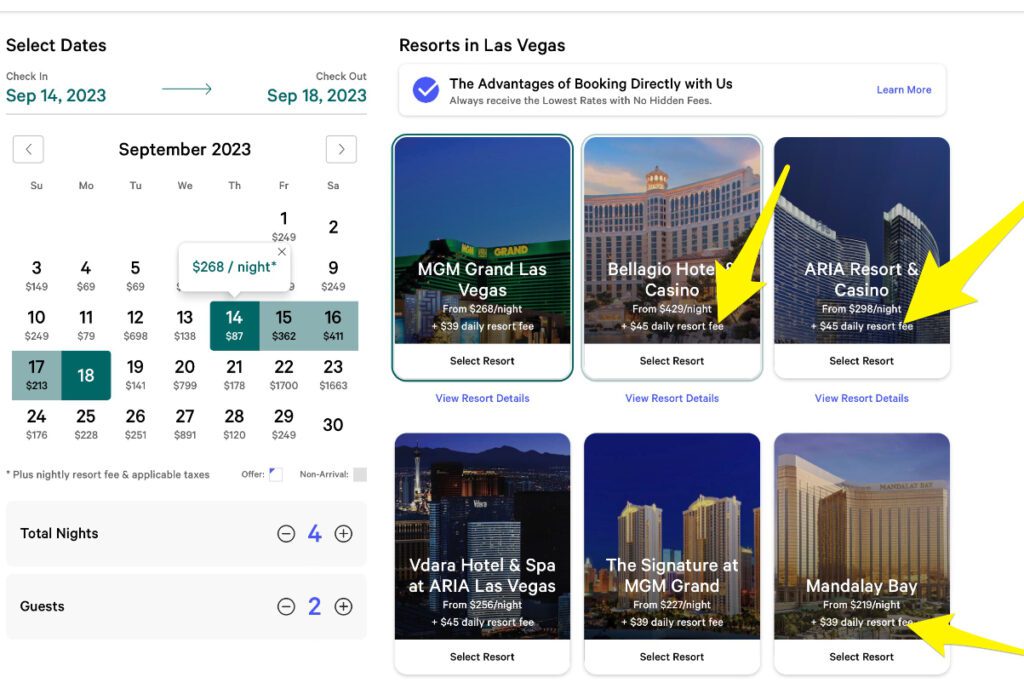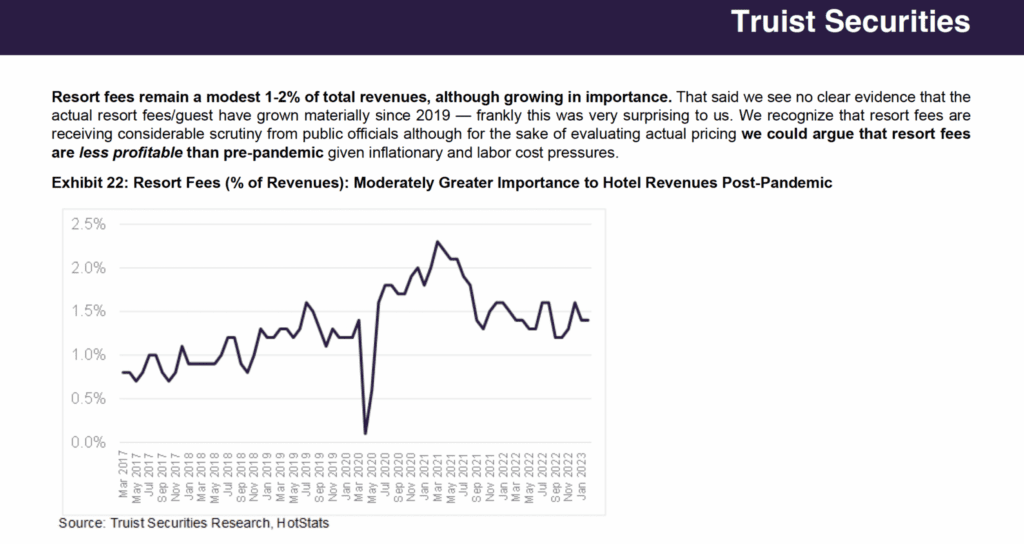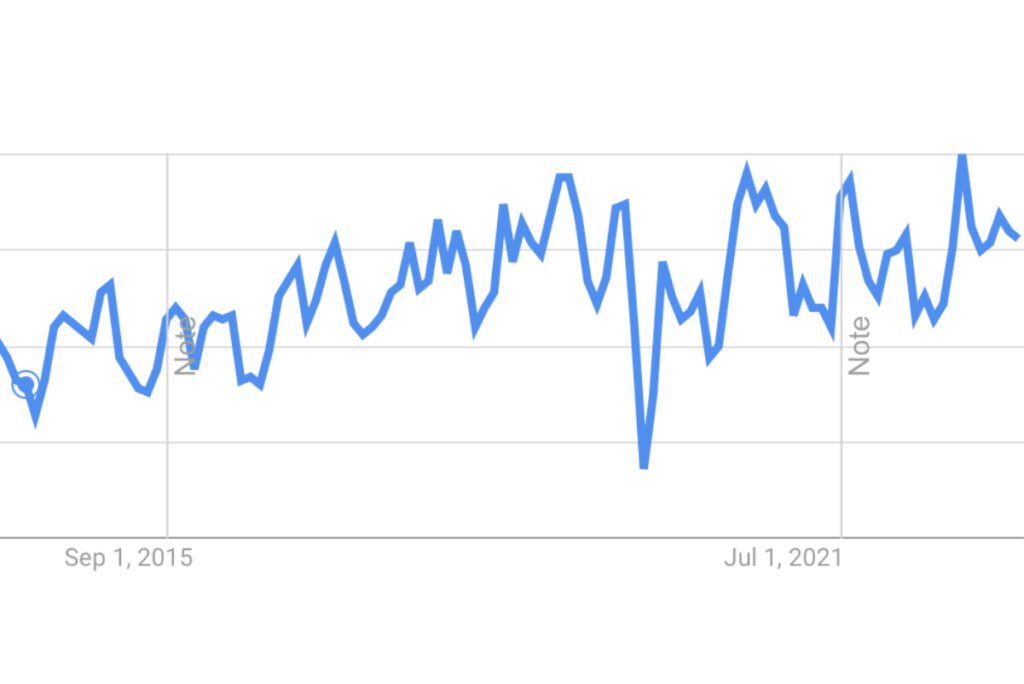Hyatt Now Discloses Resort Fee Up-Front, but Hotel 'Junk Fee' Issues Remain

Skift Take
Hyatt, Marriott, and MGM Resorts have been hit with lawsuits since 2019 over how they disclose mandatory resort fees. The companies have since changed how they disclose resort fees on their websites and apps.
Hyatt in July began displaying nightly rates plus resort fees upfront on a traveler’s first search of its site and app, a spokesperson confirmed to Skift on Tuesday. The decision followed Marriott's similar move in May and MGM Resort's similar (and unpublicized) move earlier.
Yet these moves won't end the debate over junk fees. Lingering issues include how hotel rates and fees are displayed on online travel agencies; the fact that resort fees are mandatory; and how these fees are taxed in cities with hotel occupancy taxes.
Hyatt and MGM Resorts Change on Resort Fees
"After careful consideration, we made the decision to move to what we call an all-in rate display for hotels in the Americas," a Hyatt spokesperson said. "As of July, the most prominent rate shown throughout the booking process on Hyatt channels for properties in the Americas now includes both the room rate and any resort or destination fees. This rate does not include taxes."
In May, Texas' attorney general sued Hyatt over its hidden resort fees.
MGM Resorts made a similar change without a public statement in 2021. The casino and hotel operator now discloses the mandatory resort fee for its 17 properties at the first stage of the search process on its site and app.

Marriott began in May to display resort fees upfront for its 30-plus brands on its site and app. The move came in the wake of a 2021 legal settlement with Pennsylvania — which required the hotel operator to immediately disclose any extra fees for services and amenities offered during a guest's stay.
This October, Marriott International will start displaying 17 MGM Resorts properties on its site and mobile app as part of a licensing partnership. Marriott's site and app will include the mandatory resort fees MGM Resorts in the first rates shown, a spokesperson said.
In other words, the first rates that guests comparing MGM Resorts properties on Marriott will first see will be prices inclusive of the resort fees. Travelers booking directly on MGM Resorts' own site and app will see the rate and fee broken out on the first result instead.
Why It Matters
Disclosing fees is important. When they are disclosed is important as well. Do it at the end of the process, and the buyer may be surprised by the true cost. A delay prevents a traveler from easy comparison shopping. That's one reason why talk about so-called junk fees has grown louder this year.
A case in point: Until 2021, whenever a consumer clicked on one of MGM Resorts' properties in its search interface, they saw a rate advertised in a large font in a colored box. Meanwhile, news that a daily resort fee would be extra was shared in a small font in gray elsewhere on the page. At the last step in the online booking process, the purchaser was shown a line item for the resort fee, along with all other costs, taxes, and fees.
In a lawsuit in 2021, Travelers United, an advocacy group, alleged that MGM Resorts' practice violated laws against price deception for residents of Washington, D.C. MGM Resorts settled in October 2021, said Lauren Wolfe of Travelers United.
Multiple Hotel Brands Affected
Marriott, Hyatt, and MGM Resorts had, until this year, been hardly alone in delayed disclosure of resort fees on their sites and apps.
Hilton denies wrongdoing as alleged in an ongoing lawsuit against it on this issue by Nebraska Attorney General Doug Peterson launched in 2019. Texas is also suing Hilton.
Some Choice Hotels franchisees, such as the M Resort Spa Casino Las Vegas, charge resort fees without those fees being included in the upfront total rates on Choice's site. Some Wyndham franchisees also engage in the practice, such as The New Yorker A Wyndham Hotel, without Wyndham including the fees in total prices displayed.
Many smaller brands also charge resort fees.
Have the Hotel Companies Done Enough?
Marriott, Hyatt, and MGM Resorts still face some outstanding grievances from some consumer advocates and government representatives.
- "This is a positive step forward, but it actually does very little for consumers comparing hotel prices on booking sites like Expedia and Priceline," said Randy Greencorn, who runs the site Resort Fee Checker. "On third parting booking sites typically display the price per night before resort fees, making hotels with resort fees appear less expensive than they actually are. This is potentially misleading."
- It's not fully clear who or what is responsible for that reality. This month, Texas filed suit against Booking Holdings, owner of Booking.com and other sites, for not disclosing resort fees and other fees upfront.
- Hotel groups also quote prices without resort fees in ad and marketing campaigns.
- At the municipal level, some U.S. cities charge a hotel occupancy tax, and they only tax a hotel's advertised rate — meaning that resort fees appear to lead to lost tax revenue. In some jurisdictions, like New York City, major companies like Marriott are properly charging the city occupancy tax on the resort fee. But other companies, especially smaller ones, aren't.
- Some activists complain that, in specific cases, the resort fees don't provide legitimate value to guests as they occasionally include seemingly frivolous things like access to pools that all guests get access to anyway or offers of discounts for services some guests will want to opt out of.
- "Unlike the unbundled fees airlines charge that you can opt out of and fly in a seat, hotel resort fees can't be opted out of, which is why we say their purpose is deceptive pricing," Wolfe said.
Yet of all the gripes, it's worth noting that the landmark Pennsylvania case against Marriott focused on the upfront bundled display of rates that Marriott adopted in May.
More Momentum?
It's unclear how large of an issue junk fees are.
Research analysts at Truist believe U.S. hotel groups haven’t expanded the practice since 2019, with resort fees remaining “a modest” amount of total revenues — between 1 and 2 percent — based on data from HotStats, a benchmarking service.

A survey by the hotel sector's main lobby found that 94% of hotels don't charge resort fees, said American Hotel and Lodging Association president and CEO Chip Rogers.
"Since 2015, both the nightly resort fee rate and the number of hotels charging resort fees has continued to grow," said Greencorn of Resort Fee Checker. "For instance, the average resort fee was $16.83 per night in 2015 and is now $26.50 per night, with many hotels charging more than $50 per night."
Marriott had roughly 180 hotels charging resort fees out of roughly 5,000, ringing up about $220 million in revenue between 2012 and 2019, according to Washington, D.C.'s attorney general.
Yet the term "junk fees" has caught on in less than a year for a few reasons. Pennsylvania's lawsuit against Marriott has inspired other lawsuits. Plus, a few national politicians, including President Joe Biden, are trying to use junk fees as a talking point.

"All sorts of pressure from multiple groups, such as the president himself, many states attorneys general, and other sources have been pushing hotel companies to be less deceptive in how they display their resort fee prices," Wolfe said.





